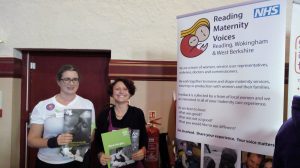Prepare for the worst
This week I’m hearing a lot from the 3rd Annual Birth Trauma Conference, particularly about mental health after birth, and how well prepared – or not – women feel. Milli Hill pointed out in a tweet what a straw man it is to blame antenatal preparation alone:
“Blame goes to antenatal teacher, or the woman herself…but oddly never to the system that doesn’t give women optimal chance of straightforward birth but instead often traumatises her. #birthtrauma18”
There are two things to look at here. One is how possible it really is to cover birth trauma and an issue as serious as postnatal psychosis, in a group of 8 couples (for your average NCT class), in a limited period of time and alongside other huge important topics, and in a context that is intended to empower women in the birthplace? The other is, how much impact does antenatal education have in the face of the barriers to straightforward birth including but not limited to lack of continuity of care, time pressures put on women by staff with time and protocol pressures on them, lack of real informed consent, and a society-wide assumption that birth is difficult and dangerous, and a healthy baby is all that matters? It’s a lot easier to say “NCT set me up to fail” than to acknowledge that the entire system sets women up to fail.
I spend much of my working hours and my voluntary time chipping away at the system, and write and broadcast constantly about those big issues. So let’s just look at that one smaller issue, how we tell a group of already-fearful pregnant women that birth might leave them with PTSD, without undoing all the work of empowering them to trust their bodies and birth their babies with as little unwanted intervention as possible. I can’t speak for all antenatal education (and let’s not forget that NCT isn’t the only provider of antenatal courses), but I can tell you about my own. I do this in small groups, providing a set of handouts and a case study for each group. The case studies cover baby blues, postnatal depression (men and women) and relationships and expectations after the birth. The handouts also mention postpartum psychosis. The ensuing discussion covers risk factors, symptoms, self-care, support, and so on. Some groups really engage with this, and often when someone has experience of depression, they make very valuable contributions. I’m always aware that there may be people who have experienced it and will stay very quiet. Once I observed an antenatal session where the practitioner covered feelings after birth immediately after doing a relaxation, and left the lights down low; in that atmosphere of safety and calm, a woman shared the story of her antenatal depression and it was powerful.
I just want to say that if even NCT, who have the best trained and most rigorously assessed antenatal practitioners out there, can’t always get this right for women, perhaps we need to go back and take on the difficult task of addressing the big issues, and work together instead of blaming – which potentially puts people off accessing valuable support and education. It’s also worth noting that antenatal educators of any brand don’t operate in a cheerful idealistic vacuum: we sit on Maternity Voices Partnerships, we campaign, we listen to women, we make and listen to podcasts, we are mothers; and we are involved in the system and we are active in trying to make it better. “Setting women up to fail” is an unfair accusation.

